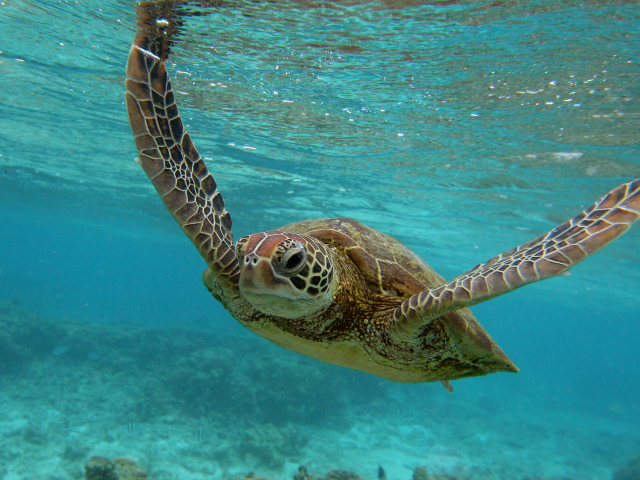The Vatican has once more waded into the uncharted waters of environmental protection, urging nations to practice “multilateral governance” in order to combat the evils of rising sea levels and the loss of coral reefs.
Writing on behalf of Pope Francis, Vatican Secretary of State Cardinal Pietro Parolin addressed the Fourth International Conference on Our Ocean, an Ocean for Life, encouraging participants to abandon “cynical or indifferent ways of acting” and to become fully engaged in care for the oceans “as part of an integrated vision of human development.”
We cannot “remain indifferent before the loss of coral reefs, essential places for the survival of marine biodiversity and the health of the oceans,” he wrote, “as we witness a marvellous marine world being transformed into an underwater cemetery, bereft of colour and life.”
Care for creation is a concrete way of honoring the “covenant between humanity and the environment,” Parolin wrote, which requires ongoing education, training and the contemplation of the grandeur of the created world.
The health of the oceans is an imperative for Christian action, the Cardinal suggested, requiring awareness as well as commitment.
The welfare of “countless men and women” is directly affected by human trafficking, slave labour and the “inhumane working conditions associated with the fishing industry and commercial shipping,” the Cardinal wrote, as well as “the situation of islands threatened by rising sea levels.”
The best way to address these critical issues is through “multilateral governance aimed at the pursuit of the common good and equipped to operate at the global and regional levels,” Parolin said, since the oceans “are the common heritage of the human family.”
“We cannot pretend to ignore the problems of ocean pollution resulting, for example, from plastic and microplastics that enter the food chain and cause grave consequences for the health of marine and human life,” he said.
Since the beginning of his pontificate in 2013, Pope Francis has been a vocal advocate of clean, renewable energy and the reduction of carbon emissions. His groundbreaking 2015 encyclical letter, Laudato Si, on care for the environment was the first teaching letter of its sort in the history of the Catholic Church.
In that text, Francis wrote of an “urgent need” to take steps leading to the substitution of fossil fuels with alternative energy sources.
“Carbon dioxide pollution increases the acidification of the oceans and compromises the marine food chain,” the pontiff asserted. “If present trends continue, this century may well witness extraordinary climate change and an unprecedented destruction of ecosystems, with serious consequences for all of us.”
“A rise in the sea level, for example, can create extremely serious situations, if we consider that a quarter of the world’s population lives on the coast or nearby, and that the majority of our megacities are situated in coastal areas,” he said.
In an address to members of the Pontifical Academy of Sciences (PAS) last November, Pope Francis called climate change skeptics to an “ecological conversion” capable of supporting and promoting sustainable development.
“Never before has there been such a clear need for science to be at the service of a new global ecological equilibrium,” Francis told his hearers while painting a picture of a world on the verge of “ecological collapse” and a “consequent increase of poverty and social exclusion.”
At the same time, Francis has insisted that when it comes to climate change he is encouraging debate rather than trying to impose his own understanding of environmental concerns.
“On many concrete questions,” he wrote in Laudato Si, “the Church has no reason to offer a definitive opinion; she knows that honest debate must be encouraged among experts, while respecting divergent views.”
“Here I would state once more that the Church does not presume to settle scientific questions or to replace politics,” Francis said. “But I am concerned to encourage an honest and open debate so that particular interests or ideologies will not prejudice the common good.”
Francis also said it is necessary to create “a social debate” in which of those involved in any way can explain their problems and “have access to adequate and reliable information in order to make decisions for the common good,” something rarely seen in contemporary discussions of climate change that tend to exclude those with divergent views.
Follow Thomas D. Williams on Twitter Follow @tdwilliamsrome

COMMENTS
Please let us know if you're having issues with commenting.